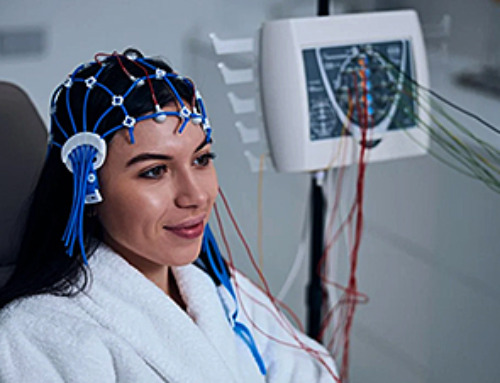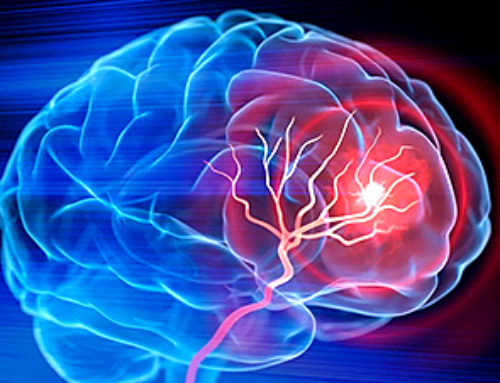Smoking and vaping impair vascular function, even without nicotine, with the most significant effects seen in nicotine-containing e-cigarettes. Researchers recommend avoiding both for better health.
Researchers have discovered immediate impacts of cigarette and e-cigarette smoking on vascular function, even in the absence of nicotine. Findings from the ongoing study were recently presented at the annual meeting of the Radiological Society of North America (RSNA).
E-cigarettes, also known as vapes, are battery-operated devices that heat a liquid to produce an aerosol, which is then inhaled into the lungs. Vapes contain significantly fewer chemicals and toxins than are found in tobacco smoke. As a result, e-cigarettes are believed by many to be less harmful than cigarette smoking. Vapes also come in various flavors, making them popular among young people.
Investigating the Immediate Impact of Smoking and Vaping
"E-cigarettes have long been marketed as a safer alternative to regular tobacco smoking," said study lead author Marianne Nabbout, M.D., a radiology resident at the University of Arkansas for Medical Sciences in Little Rock. "Some believe that e-cigarettes don't contain any of the harmful products, such as free radicals, found in regular tobacco cigarettes, because no combustion is involved."
While vaping exposes users to fewer toxic chemicals than cigarettes, it can still be detrimental to vascular function and overall health.
In the study conducted at the University of Pennsylvania, Dr. Nabbout and colleagues sought to identify the acute effects on vascular function of cigarette smoking and the immediate effects of e-cigarette vaping, with and without nicotine.

A total of 31 healthy smokers and vapers ranging in age from 21 to 49 years have been included to date. In three separate sessions, study participants underwent two MRI exams, one before and one after each of the following smoking/vaping episodes: tobacco cigarette, e-cigarette aerosol with nicotine and e-cigarette aerosol without nicotine.
A cuff was placed on the upper thigh to restrict blood flow. Once deflated, femoral artery flow velocity (a measure of the speed of blood flow in the femoral artery) and venous oxygen saturation (a measure of the amount of oxygen in the blood that returns to the heart after supplying oxygen to the body's tissues) were evaluated.
Cerebrovascular (blood flow in the brain) reactivity was measured with a special type of MRI called phase-contrast MRI.
Significant Decreases in Vascular Function
The data of the smokers and vapers was then compared to the baseline scans of 10 non-smokers and non-vapers ranging from 21 to 33 years old.
Following inhalation of each type of vaping or smoking, there was a significant decrease in the resting blood flow velocity in the superficial femoral artery. This artery runs along the thigh and supplies oxygenated blood to the entire lower body.
The decrease in vascular function was most pronounced after inhalation of e-cigarettes containing nicotine, followed by e-cigarettes without nicotine.
Decreased venous oxygen saturation was also present in vapers, whether or not the e-cigarettes contained nicotine. This suggests an immediate decrease in the uptake of oxygen by the lungs after vaping.
"This study serves to highlight the acute effects smoking and vaping can have on a multitude of vascular beds in the human body," Dr. Nabbout said. "If the acute consumption of an e-cigarette can have an effect that is immediately manifested at the level of the vessels, it is conceivable that the chronic use can cause vascular disease."
According to Dr. Nabbout, the take-home message for the public is that vaping may not be free of harm. "Ultimately, we are relying on science to help guide the regulation of such products in favor of public health," she said. "Refraining from smoking and vaping is always recommended."
Meeting: 110th Scientific Assembly and Annual Meeting of the Radiological Society of North America
This research project is supported by the National Institutes of Health.
Co-authors are Michael C. Langham, Ph.D., Alessandra Caporale, Ph.D., Shampa Chatterjee, Ph.D., Frank T. Leone, M.D., M.S., Andrew Strasser, Ph.D., Christiana Cottrell
News
A Simple Brain Scan May Help Restore Movement After Paralysis
A brain cap and smart algorithms may one day help paralyzed patients turn thought into movement—no surgery required. People with spinal cord injuries often experience partial or complete loss of movement in their arms [...]
Plant Discovery Could Transform How Medicines Are Made
Scientists have uncovered an unexpected way plants make powerful chemicals, revealing hidden biological connections that could transform how medicines are discovered and produced. Plants produce protective chemicals called alkaloids as part of their natural [...]
Scientists Develop IV Therapy That Repairs the Brain After Stroke
New nanomaterial passes the blood-brain barrier to reduce damaging inflammation after the most common form of stroke. When someone experiences a stroke, doctors must quickly restore blood flow to the brain to prevent death. [...]
Analyzing Darwin’s specimens without opening 200-year-old jars
Scientists have successfully analyzed Charles Darwin's original specimens from his HMS Beagle voyage (1831 to 1836) to the Galapagos Islands. Remarkably, the specimens have been analyzed without opening their 200-year-old preservation jars. Examining 46 [...]
Scientists discover natural ‘brake’ that could stop harmful inflammation
Researchers at University College London (UCL) have uncovered a key mechanism that helps the body switch off inflammation—a breakthrough that could lead to new treatments for chronic diseases affecting millions worldwide. Inflammation is the [...]
A Forgotten Molecule Could Revive Failing Antifungal Drugs and Save Millions of Lives
Scientists have uncovered a way to make existing antifungal drugs work again against deadly, drug-resistant fungi. Fungal infections claim millions of lives worldwide each year, and current medical treatments are failing to keep pace. [...]
Scientists Trap Thyme’s Healing Power in Tiny Capsules
A new micro-encapsulation breakthrough could turn thyme’s powerful health benefits into safer, smarter nanodoses. Thyme extract is often praised for its wide range of health benefits, giving it a reputation as a natural medicinal [...]
Scientists Develop Spray-On Powder That Instantly Seals Life-Threatening Wounds
KAIST scientists have created a fast-acting, stable powder hemostat that stops bleeding in one second and could significantly improve survival in combat and emergency medicine. Severe blood loss remains the primary cause of death from [...]
Oceans Are Struggling To Absorb Carbon As Microplastics Flood Their Waters
New research points to an unexpected way plastic pollution may be influencing Earth’s climate system. A recent study suggests that microscopic plastic pollution is reducing the ocean’s capacity to take in carbon dioxide, a [...]
Molecular Manufacturing: The Future of Nanomedicine – New book from Frank Boehm
This book explores the revolutionary potential of atomically precise manufacturing technologies to transform global healthcare, as well as practically every other sector across society. This forward-thinking volume examines how envisaged Factory@Home systems might enable the cost-effective [...]
New Book! NanoMedical Brain/Cloud Interface – Explorations and Implications
New book from Frank Boehm, NanoappsMedical Inc Founder: This book explores the future hypothetical possibility that the cerebral cortex of the human brain might be seamlessly, safely, and securely connected with the Cloud via [...]
Global Health Care Equivalency in the Age of Nanotechnology, Nanomedicine and Artificial Intelligence
A new book by Frank Boehm, NanoappsMedical Inc. Founder. This groundbreaking volume explores the vision of a Global Health Care Equivalency (GHCE) system powered by artificial intelligence and quantum computing technologies, operating on secure [...]
Miller School Researchers Pioneer Nanovanilloid-Based Brain Cooling for Traumatic Injury
A multidisciplinary team at the University of Miami Miller School of Medicine has developed a breakthrough nanodrug platform that may prove beneficial for rapid, targeted therapeutic hypothermia after traumatic brain injury (TBI). Their work, published in ACS [...]
COVID-19 still claims more than 100,000 US lives each year
Centers for Disease Control and Prevention researchers report national estimates of 43.6 million COVID-19-associated illnesses and 101,300 deaths in the US during October 2022 to September 2023, plus 33.0 million illnesses and 100,800 deaths [...]
Nanomedicine in 2026: Experts Predict the Year Ahead
Progress in nanomedicine is almost as fast as the science is small. Over the last year, we've seen an abundance of headlines covering medical R&D at the nanoscale: polymer-coated nanoparticles targeting ovarian cancer, Albumin recruiting nanoparticles for [...]
Lipid nanoparticles could unlock access for millions of autoimmune patients
Capstan Therapeutics scientists demonstrate that lipid nanoparticles can engineer CAR T cells within the body without laboratory cell manufacturing and ex vivo expansion. The method using targeted lipid nanoparticles (tLNPs) is designed to deliver [...]





















